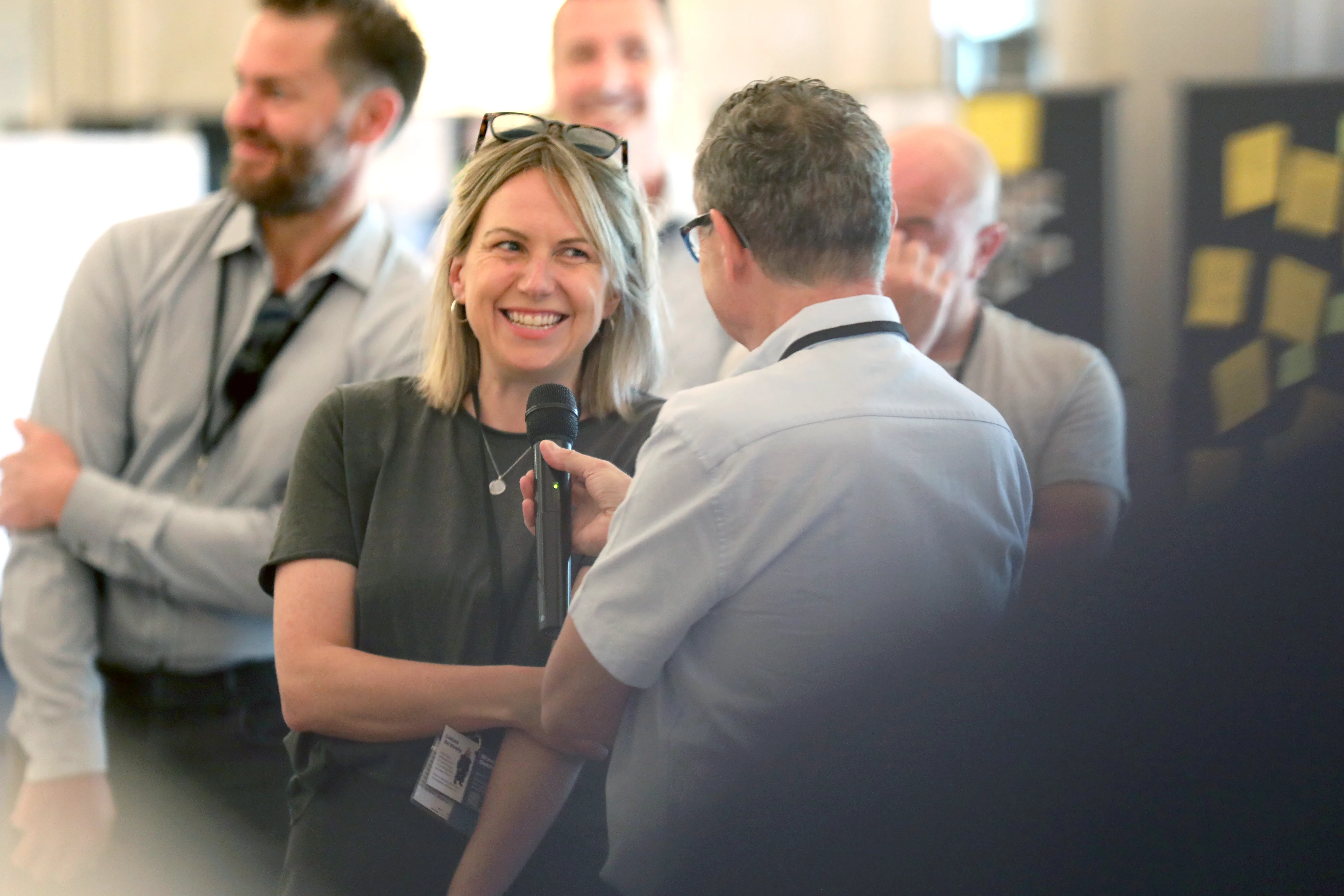Flexibility is Fabulous; don’t fight it
The swing towards flexible working, given a boost by COVID, feels like it might have peaked and be heading back the other way. Which would be a great pity, in my humble opinion. Why would any organisation want to be inflexible, rigid, fixed, or stubborn when they can be supple, elastic, adaptable, and agile?
Even as new Flexible Working Regulations are about to become law in the UK (in April 2024), and the vast majority of workers say they prefer hybrid working, various organisations are ‘ordering staff back into the office 5 days a week’.
But although I think mandatory 100% in-office working is a mistake, it’s important to admit that making hybrid and remote working effective and enjoyable isn’t that easy. It takes more effort, more thought, and more creativity, both from individuals and organisations. So, getting everyone back to the office can look like the easy solution, with the added benefit for the micro-manager types, that they can feel like they are back in control because they can see where everyone is sitting.
In my view, true flexibility is fabulous, and organisations that are fighting it need to think again and make the effort to make it work. Oxford has been a fully flexible organisation for over 35 years. We’ve tried various approaches, we’ve learned a lot, and we believe it’s at the heart of our culture and team. And as we’re often asked to share our experience and insights with our clients, we thought we’d share them more widely.
What even is ‘flexibility’?
In our experience, ‘flexibility’ has four aspects.
- Location. This is the most obvious one. Why should everyone in your organisation have to live within an hour’s travel time of a random pin in a map? Why would you limit your talent pool to people who happen to have landed in (or be able to move to) a particular, small area? And why would you then make everyone spend hours of every day in trains and cars? Flexibility means people can work from wherever they are, as long as it has good wifi. At Oxford, we all work from wherever we want, every day. Mostly, that means in our nicely set-up office spaces in our own homes, of course. But we might also stay with family for a few weeks, rent a place by the beach for the summer, use a local co-working space that’s easy to get to, or work at a colleague’s house for some collaboration time.
- Hours. Once you let go of having everyone in the same office, you can also challenge whether everyone needs to work the same hours. Most organisations need to work across time zones with other teams, with customers, and suppliers. As long as people make the relevant meetings and get the work done, they can manage their own time and availability. At Oxford, we have some early birds who like to be at their desks at 7.30am but will walk the dog for 2 hours in the day. And others who always take time out to do the school runs but will put in their final working hour after the kids bathtime. Our clients are all over the world, so all of us have done meetings at 6 a.m. or 8 p.m. and then taken a chunk of the next day off instead.
- Career. A more long-term thought, but even more important. Flexibility in your career means you don’t have to follow the standard pattern. You might switch roles, change industry, or take substantial breaks. A range of experiences, both at work and in life, are essential to building the creativity and problem-solving that we need for today’s challenges. A period of caring for kids or elders will give you the best productivity and organisational skills—and no one has ever learned to negotiate until they’ve taken on a toddler! The resilience required to start over and learn a new industry or role is to be admired. At Oxford, all our consultants started in client-side jobs and decided to move into consulting mid-career. That sort of flexibility means you can step into a new challenge every day and add value immediately.
- Ideas. Less obvious than location or hours, this is another important way for everyone to bring their best selves to their jobs. Sitting in the same building and working the same hours encourages everyone to do things the same way. It can be called collaboration or consistency, but it can easily become groupthink. The boss, or most dominant voice, sets the ‘way’, and monitors those around them to ensure compliance. But if you are working flexibly, carving out your own space and time to think, then you are more likely to work in your own way, finding different answers and following new tracks of thought. Quite a few of my colleagues swear their best ideas arrive during their morning jog or dog walk, or whilst chatting to their kids about their day, or even whilst folding the laundry during a coffee break.
What flexibility is NOT
Let’s just be clear before we go any further. Flexibility is not the answer to all HR problems; people still need to be motivated by their job, their colleagues, and their organisation. It’s not an absence of rules, structure, or direction. It doesn’t mean ‘letting’ some people work from home sometimes as a favour, and it’s not about saving money on office space. It is important that flexibility always goes both ways; it’s not only about the organisation being flexible, but the individuals also need to lean in and flex in return. And it’s not that easy to do well, which is probably why too many organisations have given up.
Why do we care so much about it?
As we’ve been working like this at Oxford since 1987, to be honest, we used to take it for granted. In consulting, all that matters is the quality of your people, and our flexible culture has given us the unique ability to recruit amazing people from all over the world who simply wouldn’t agree to work for rigid location-based businesses. So this is the only way we’d ever work.
| But campaigns like Flex Appeal, led by Anna Whitehouse, have made us realise that so many other organisations pay lip service, don’t get it right, or even actively resist it, as recently reported by the University of Birmingham. It is a pity for them, but an even bigger pity for the brilliant people who aren’t given the chance to live and work in a way that brings out their best. |
|
The future of our economy depends on successful hybrid and flexible working (see this report from The Health Foundation). We’ve recently been working with Back to Businessship, supporting marketing professionals who want to return to their careers after significant breaks, and we’ve learned a lot about how the world of work is stacked against them, despite the race for talent in our industries. And as a B Corp, we believe in business that works for People and the Planet, as well as Profit – and this lack of flexibility is wasteful and damaging. We want to help turn things around.
What do you need, to make flexibility a success?
The right culture
You need to start with a genuine appreciation for the positive benefits of flexibility and a willingness - in fact, enthusiasm - to apply it to everyone in the organisation. If flexibility is seen as something people need to ask for, or if that’s only for parents or part-time workers, it becomes restricted and resented. Instead, make it a critical part of your culture for everyone. At Oxford, it’s one of our Values. Make sure you have well-written, thoughtful policies that welcome flexibility. Build everything around an assumption of flexibility and a commitment to inclusion, which means hybrid or multi-location social events or recording meetings for people not working that day. Lead from the top in talking openly about flexible working—when the CEO joins a meeting from their mother’s house because they are there for a family event later in the day, then be proud of that and don’t put up a fake Teams background to hide it! Of the 20 most senior people at Oxford, 50% work part time, and anyone can use our ‘unlimited unpaid leave’ policy to get a bit more time for childcare or amazing travel. Part-time doesn’t mean part-committed; it means that you’re fully committed to finding the right balance in life.
The right structure
No one in a modern business works in isolation, and team structure can benefit from a flexible culture. An office-based working environment can create cliques and silos, as well as a tendency to work best with the people in your department or the people you sit near. But in a flexible environment, everyone is equal. You can build teams based on skills and talents without thinking about location. You can move people from one department to another without shifting a single pencil pot on a desk. You can create hybrid roles with different reporting lines or combined responsibilities without debates about how to share desk space. Teams become adaptable and agile, responding to workflow rather than being fixed in place by room dividers. At Oxford, we have a unique community made up of full-time staff, part-time staff, and fully-flexible contractors, and our project teams are built with the right people for that specific job. Of course, there needs to be a flexible management solution too; for instance, we don’t have a fixed people management structure but instead a matrix of project managers and individual mentors or sponsors. And we avoid titles or hierarchy as much as possible to enable everyone to take the right role at the right time.
The right kit
As lockdowns hit in 2020 and our clients called us from their kitchens, the most frequently asked question was, ‘What advice can you give me on working from home?’. Knowing everyone at Oxford has always worked that way, they were turning to us for insight and guidance. I always said the same things. You might think it’s about attitude, organisation, and discipline—and to an extent, it is—but really, what really matters is the right kit. Get a good ergonomic chair, because that kitchen chair is going to kill your back. Get a big, double-screen setup if you can; it’s life-changing and eye-saving. If it’s winter, get a heated blanket, and if it’s summer, get a fan—you’re going to miss that office air conditioning. Enjoy the opportunity to play your own choice of music with the right headphones, or immerse yourself in total silence. Learn to love the tech tools of modern collaboration—Teams, Slack, Google Docs, and so on. (When I started working from home, I loved my fax machine.) And recognise that if you can’t set up a good working space at home—often the case for younger generations in small rented flats where ‘working from home’ means ‘working from bed’— then maybe your flexibility means a shared office or workspace café, where a decent table and the buzz of other workers will give you the boost you need.
So, do you agree that Flexibility is (or can be) Fabulous?
It means you get to work with the best talent in a way that works best for everyone, without the false limitations of geography, time zone, or career path. And, like all the best things in life and work, it’s worth fighting for, and everyone deserves access to it.
How can we help?
Oxford helps our clients deliver change, and to build their capabilities. We can advise on culture, values, organisational structure, ways of working, resources, and skills. We especially love to inspire and engage the commercial teams to find new ways to collaborate and work together for success in today’s world.
About the author
Having previously worked in HR for large UK and Global organisations throughout the years, Linsey really has seen it all. Being at Oxford gives Linsey the autonomy to shape HR in a way that is people centric and values driven.

Share this
You May Also Like
These Related Stories

We Invented the Customer Journey Map for Eurostar and We’ve Still Got It

Why you need to be brave with your creativity

.png?width=657&height=57&name=OXFORD%20LOGO%20(1).png)

No Comments Yet
Let us know what you think